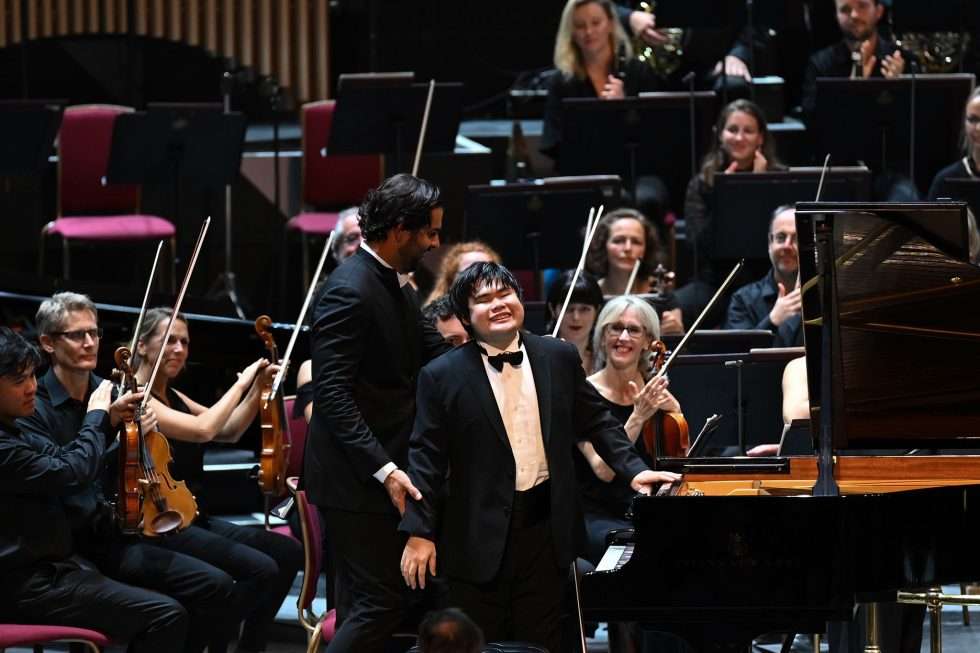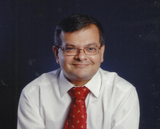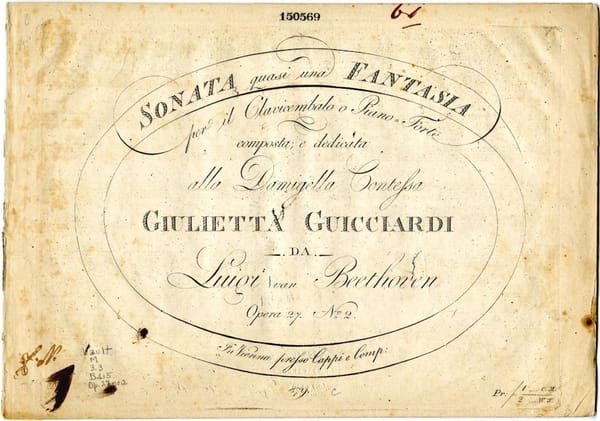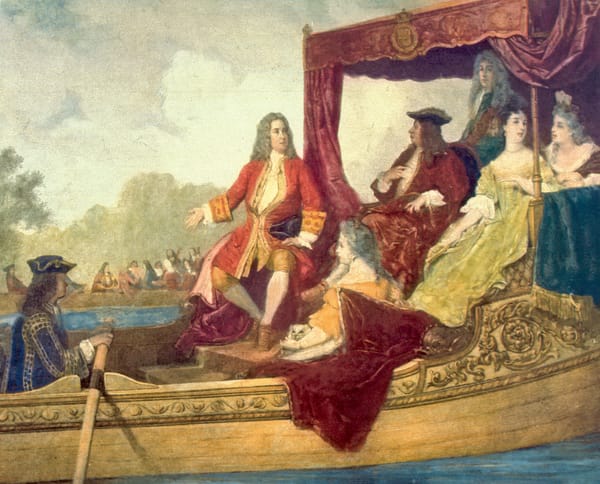Mastering the Keys of Darkness: The Blind Pianist Nobuyuki Tsujii

The 2023 edition of the eight-week long BBC Proms festival finally ended with a crash, boom and wallop on 9 September. It had me glued for all that time to internet radio, so the abrupt absence of the daily ritual is a little disorienting.
It has been a remarkable season in so many respects. One comes across new names all the time in the highly competitive world of classical music. But BBC Proms 2023 surprised me not once, but twice, in highlighting musical excellence against unimaginable odds.
A few columns ago, I wrote about horn player Felix Klieser, born without arms, perform one of Mozart’s famous concertos for that instrument.
In the final week of the Proms, another revelation lay in wait for me.
Every year, there is a steady stream of rising stars emerging from South East Asia, So I didn’t bat an eyelid on reading that pianist Nobuyuki Tsujii (b. 1988) would be performing at Prom 70. The night before the concert, BBC Radio 3 aired some bravura works for solo piano by Liszt and Chopin, played by Tsujii, whetting the listener’s appetite for his concert the following evening.
This year being the 150th birth anniversary of Russian composer, virtuoso pianist, and conductor Sergei Rachmaninov (1873 – 1943), the spotlight quite understandably was on his works in the festival programme.
Tsujii would be playing Rachmaninov’s epic Third Piano Concerto Op. 30 (Rach 3 to music aficionados) with the Royal Liverpool Philharmonic Orchestra under the baton of Venezuelan conductor Domingo Hindoyan.

It is a daunting work, “the ultimate Romantic piano concerto”, having the reputation of being one of the most fiendish, technically challenging piano concertos in the standard classical piano repertoire. Music writer called it “the K2 of the piano repertory: a savage, relentless exposure to everything the keyboard can throw at anyone who dares to take it on. Just as K2, despite its death rate of one in three, will always attract the elite in mountaineering circles, so too is Rach 3 the work that every pianist of genuine ability will want to master.”
Josef Hofmann, the pianist to whom the work is dedicated, never publicly performed it, saying that it “wasn’t for” him. American pianist-pedagogue Gary Graffman lamented he had not learned this concerto as a student, when he was “still too young to know fear.”
I tuned in the listen to Tsujii play with great anticipation. It was a passing comment by BBC Radio 3 presenter Martin Handley that informed me that Nobuyuki Tsujii was “born blind”!
I listened to Tsujii play Rach 3 in stunned silence. As if that were not enough, he responded to the robust applause and the trademark foot-stamping of the Proms audience with an encore – the Concert Etude Op 40 No 1 by Nikolai Kapustin, that Erica Jeal, music critic of the Guardian termed “two minutes of manic jazziness.”
The performance threw up so many questions. How did he play a concert that requires the use of the whole piano register, for one?
How does he “follow” the cues of a conductor in an orchestral concert like this one, for example? When asked if he had to “adjust” in any way, that evening’s concert Hindoyan replied,
“I don’t do anything different. We work as I would with any soloist. He [Tsujii] has a special way to learn pieces. He learns them in a way that is so logical. And he’s extremely sensitive. So he really feels every instrument and every breath, from myself, from the concertmaster, from the orchestra. It’s just like he understands the piece from the real soul of it, from very deep. It’s fantastic.”
Such accolades, I learned have followed Tsujii from the start of his concert career. The great American pianist Van Cliburn said after Tsujii won the gold medal at the 2009 Van Cliburn International Piano Competition, “He was absolutely miraculous. His performance had the power of a healing service. It was truly divine.”
Competition juror Richard Dyer, a chief music critic for The Boston Globe, said, “Very seldom do I close my notebook and just give myself over to it, and he made that necessary. I didn’t want to be interrupted in what I was hearing.”
Another piano legend Menahem Pressler said “I have the utmost admiration for [Tsujii]. God has taken his eyes, but given him the physical and mental endowment to encompass the greatest works of piano. For him to play the Chopin concerto with such sweetness, gentleness and sincerity — it’s deeply touching. I had to keep from crying when I left the room.”
“He shows that the human resources are virtually limitless, that there is practically nothing that a human being cannot do.”
At the Prom concert, Tsujii apparently “measured the keyboard” from time to time in the orchestral interludes when he wasn’t required to play, just to confirm that he was in the right position in front of the instrument. And he was led on and off by the conductor. Apart from this one wouldn’t have guessed he was blind.
Tsujii was born with a developmental disorder, microphthalmia, in both eyes, rendering him completely blind from birth. But his musical ability and interest manifested as early as two years of age, being able to play tunes on his toy piano that his mother hummed. Formal piano lessons began at age four.
Tsujii’s earliest childhood memory underscores the importance of giving children a platform, and having access to instruments: He happened to find a piano when he was four at a shopping mall when the family was on vacation and began playing “Ballade pour Adeline” (made famous by Richard Clayderman). “A crowd surrounded me and praised me. I can’t forget that feeling.”
Before long Tsujii was winning prizes and performing as a soloist and with orchestras.
But how does Tsujii learn a new work? Braille music scores are very rare, so he learns by ear. A team of pianists records scores along with specific codes and instructions written by composers, which Tsujii listens to and practices until he learns and perfects each piece.”
But Tsujii doesn’t “copy” what he hears, he clarified in a 2011 interview. His assistants make special cassette tapes (“music sheets for the ears”, he calls them, where “they split the piece into small sections, such as several bars, and record it (one hand at a time).” In this way he learns a short piece in a few days, but a big sonata or concerto can take about a month.
In a 2017 interview, Tsujii confirmed Hindoyan’s observation. When asked “How do you stay in time when you can’t see the conductor?” he replied: “By listening to the conductor’s breath and also sensing what’s happening around me.”
When Tsujii was little, he once said to his parents, “I’m blind.” He could sense from their silence their sadness, so he quickly added “But I’m all right because I play the piano”, to try and console them.
“It’s my true feeling,” he told an interviewer many years later. “It’s my closest friend. When I play, I feel a sense of unity with the piano.”
This article first appeared in The Navhind Times, Goa, India.





